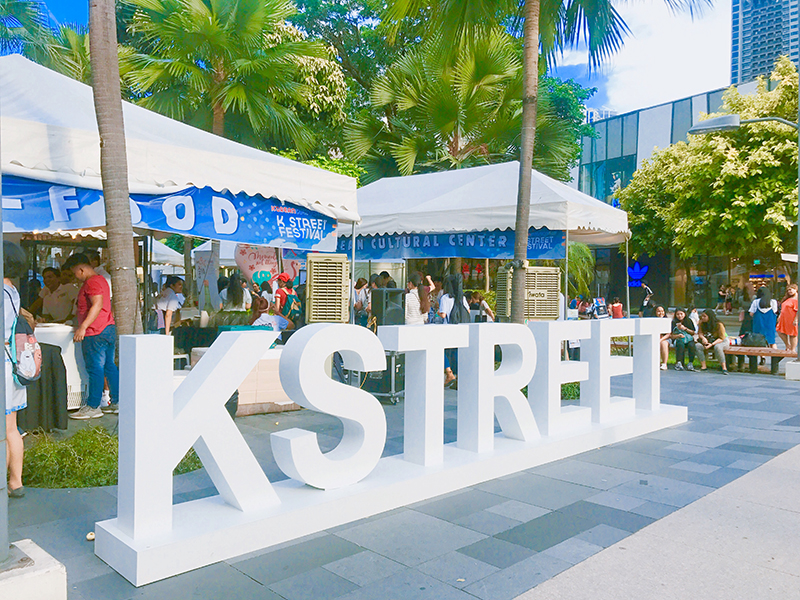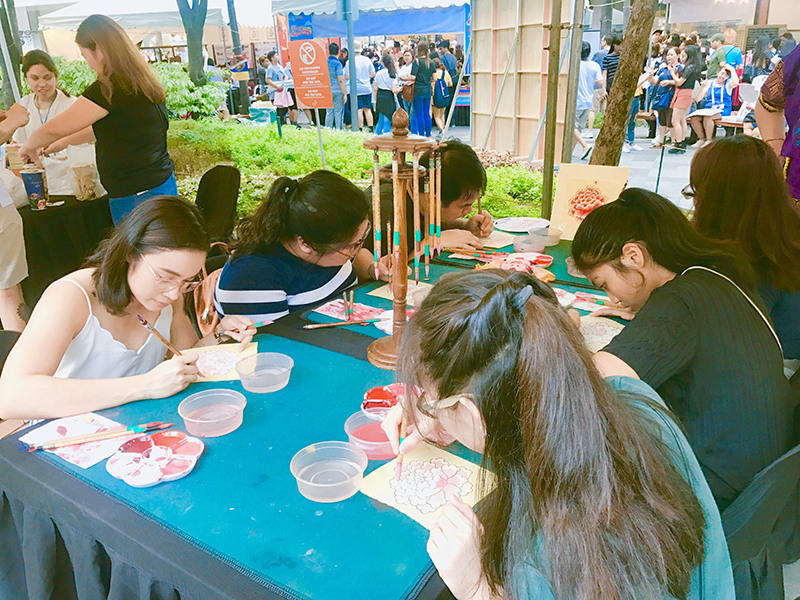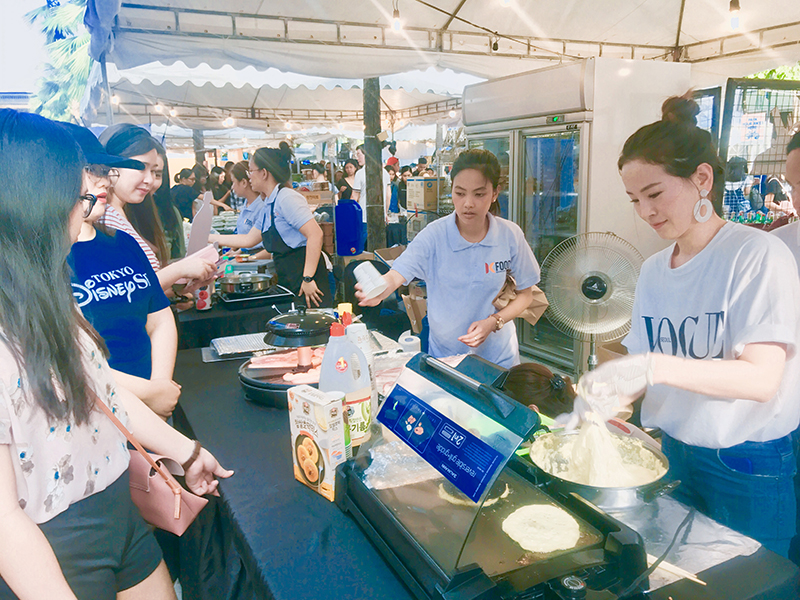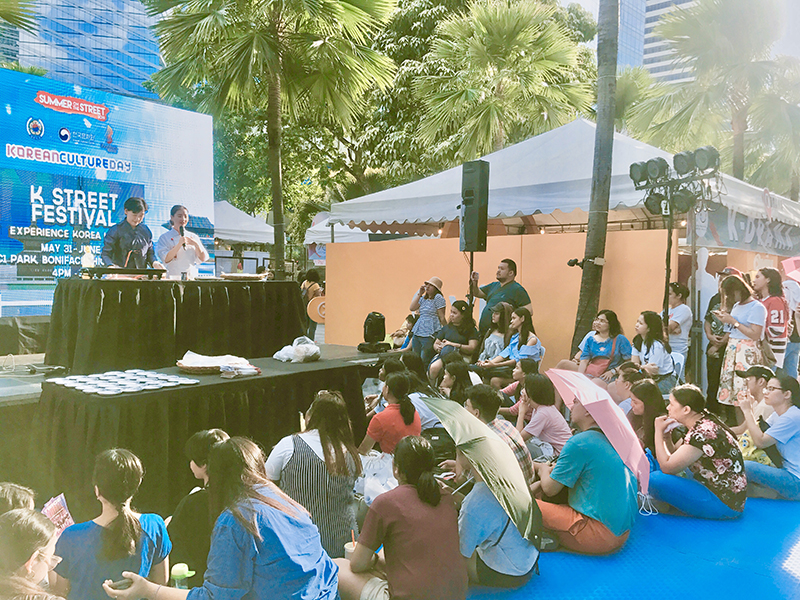View this article in another language
- 한국어
- English
- 日本語
- 中文
- العربية
- Español
- Français
- Deutsch
- Pусский
- Tiếng Việt
- Indonesian

The inaugural K-Street Festival was held from May 31 to June 1 on Bonifacio High Street in Taguig, the Philippines.
By Korea.net Honorary Reporter Isabelle Pia Sison from the Philippines
Photos = Isabelle Pia Sison
While attending the inaugural K-Street Festival hosted by the Korean Cultural Center (KCC) in Taguig, I reminisced about my experiences in Korea, and it seemed like yesterday that I was walking the streets of Seoul. Along with my friends, whom I grew close with through our mutual love for Korean music and culture, the festival offered us a chance to learn more about Korean culture, eat famous Korean cuisine and play characters from our favorite Korean dramas.
The wide diversity of Korean culture is often overlooked by most Filipinos as they tend to focus on just a few aspects. The festival provided an excellent opportunity to showcase all the unique characteristics of Korean culture through booths featuring the themes of Korean art, games, fun, drama, beauty, K-pop and tourism.
K-Art
Korea has a wealth of art and culture, and the K-art booth hosted an interactive workshop that taught minhwa, or traditional folk painting. This genre features strong adherence to the symbols and events of everyday life in Korean. The booth had an hourly workshop in which participants colored floral designs using the minhwa style of painting.
K-Food
Korean food is one of the world's most popular cuisines, and kimchi is a staple on Korean dining tables. In the Philippines, finding kimchi that matches Korean taste buds can be quite challenging. Considering online sellers and bloggers who specialize in Korean food in the Philippines, most Filipinos tend to create their own versions that often fall short of the quality available in Korea. During this festival, the K-food booth offered authentic Korean fare to offer a taste of real Korean food.

Visitors try minhwa (Korean folk painting) at the K-street Festival in Taguig.

Authentic Korean cuisine offered at booths during the festival attracted hordes of K-food lovers.
K-Fun
The so-called K-fun booth was where all the games were held. On the hit Korean variety show “Running Man,” one game that is often shown is common to both Korean and Filipinos: hopscotch. Filipinos call this game piko and Koreans sabangchigi. The booth also offered other traditional games that earned players stamps for the raffle.
K-Drama
Korean dramas are one of the main drivers of the global boom in Hallyu (Korean Wave). Many Filipinos who have not been to Korea often use Korean dramas as a tool to learn more about the Korean lifestyle and culture. In collaboration with Viu Philippines, a program allowed festivalgoers to experience scenes from their favorite series and take photos with top Korean artists.
One of the festival's main attractions was the continuous holding of programs throughout the day. When we arrived at the venue, there was a cooking demo on making authentic Korean food at home. This was followed by a brief appearance by Bae Jin-ho, a well-known Korean social media influencer based in the Philippines. And the constant broadcast of K-pop music videos was definitely a hit among the Pinoy attendees.
This festival offered Filipinos a chance to experience Korea without having to fly all the way to Seoul. For two days, the streets of a Philippine city were covered in Koreana.

The K-Street Festival attracted an estimated 30,000 participants.
wisdom117@korea.kr
*This article is written by a Korea.net Honorary Reporter. Our group of Honorary Reporters are from all around the world, and they share with Korea.net their love and passion for all things Korean.